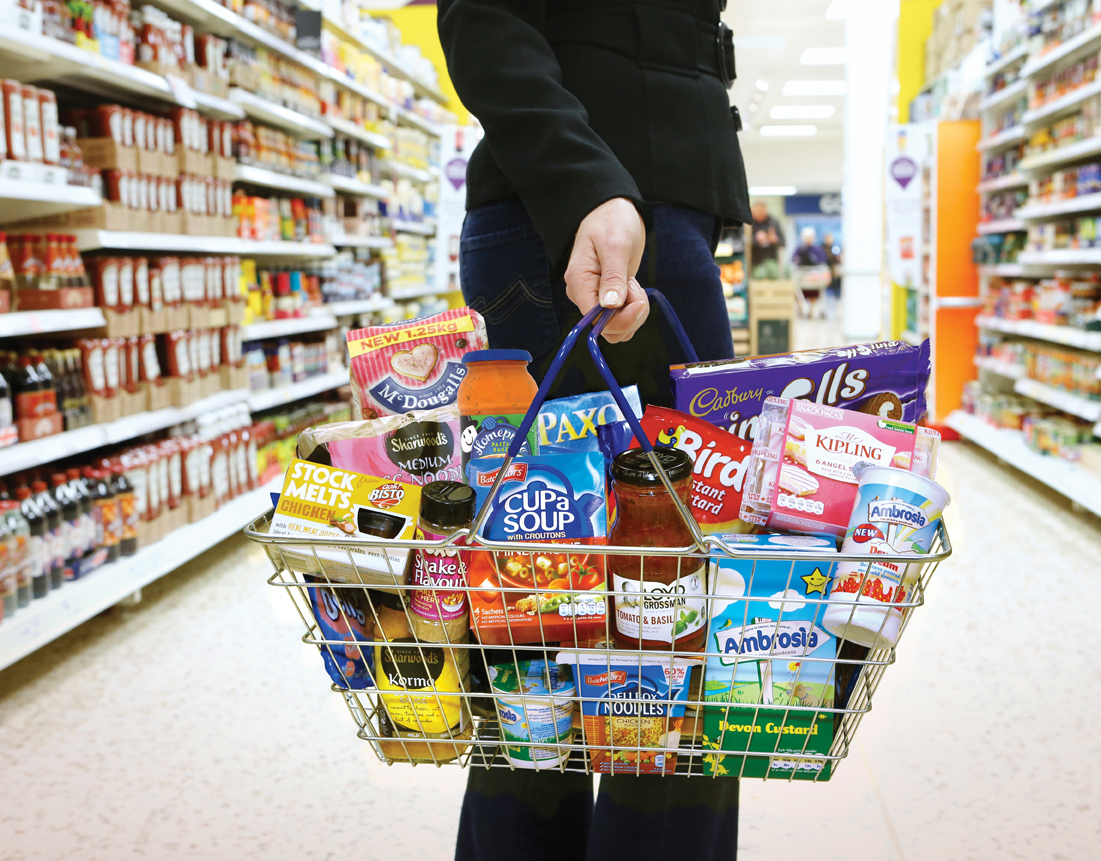Household Bills
Households paying £833 a year more for groceries as food inflation spikes

Food inflation has fallen 0.1 percentage points to 17.2% in May, but it is still the third fastest rate since 2008.
Households that don’t change their shopping habits could be spending an extra £833 a year on grocery shopping, based on the current level of food inflation.
But according to Kantar, Brits are switching from pricier branded goods to cheaper own-brand items to keep costs down.
It revealed that sales of own-label items rose by 15.2% in the four weeks to 14 May, almost double the rate of branded goods at 8.3%.
Fraser McKevitt, head of retail and consumer insight for Kantar, said: “Shoppers are savvy and they’re skirting higher prices by choosing more own-label goods.
“However, the gap between own lines and brands is narrowing in most stores, helped in some cases by loyalty discounts.”
These include the ‘Nectar Prices’ scheme in Sainsbury’s, launched in April, which sees shoppers paying less when they use their Nectar card, in a similar way to the Tesco Clubcard scheme.
The launch of Asda’s ‘Just Essentials’ range, also helped the supermarket grow its market share by 10.6% to 13.9%. Kantar said nearly two in five Asda baskets contained at least one of these value items in May.
Meanwhile, McKevitt said supermarkets are “fighting to offer value to shoppers” and the competition has seen several of them cutting the price of milk this month.
He said: “In the fierce contest for market share, eyes have been on the dairy aisle in particular, where the average cost of four pints of milk has come down by 8p since last month.
“Prices are still much higher than they were 12 months ago, at £1.60 currently versus £1.30 last year, but retailers know just how important it is to offer even small savings on staple products like milk to get customers through the door.”
Sales boost of £218m for the coronation
Despite high grocery prices, sales rose 16% over the King’s Coronation weekend with shoppers spending an extra £218m. Sales of sparkling and still wine rose by 129% and 33% respectively and wine inflation rates are currently at 1%.
Chilled pastry sales rose by 89%, fresh cream by 80%, and frozen broad beans, which were the main ingredient of the official Coronation quiche, by 57%.
Aldi was the fastest growing supermarket, with sales up 24%, followed by Lidl at 23.2% and they now account for 10.1% and 7.7% of the overall market share. Aldi was also the cheapest supermarket in April, according to Which?.
Asda grew by 10.6% to a market share of 13.9% in May and Morrisons took an 8.7% share. At Tesco, the UK’s largest supermarket, sales rose 8.9% giving it 27.1% of the market share followed by Sainsbury’s rising by 10.5% to 14.8%.
High food prices under the spotlight
Today’s data from Kantar comes as food prices are expected to rise further, taking over from energy bills as the biggest financial pressure on households.
The Chancellor, Jeremy Hunt, is due to meet with food manufacturers today to raise concerns about the high price of food in the UK and discuss measures the Government can take with industry to ease the pressure on households.
He will also meet with the Competitions and Markets Authority (CMA) following its ongoing investigation into pricing in the food and fuel markets. It is looking into how fair pricing is in these areas and how to make it easier for consumers to compare the price of products.
Earlier this month, Hunt met with supermarket bosses to try and tackle the problem of soaring food prices in the middle of a cost-of-living crisis where households are being financially stretched from every angle.
Chancellor of the Exchequer, Jeremy Hunt, said: “High food prices are proving stubborn so we need to understand what’s driving that.
“That’s why I’m asking industry to work with us as we halve inflation, to help ease the pressure on household budgets.”
Food inflation remains at ‘unsustainable levels’
Rocio Concha, Which? director of policy and advocacy, said: “Food inflation remains at unsustainable levels and soaring prices are putting intolerable pressure on household budgets for millions of people. Which? hears every day from desperate parents or people on low incomes who are already resorting to extreme measures like skipping meals in order to provide for their loved ones.
“It’s good news the Government has committed to reviewing pricing rules, but this must be undertaken as soon as possible as much clearer pricing is vital in enabling shoppers to compare prices and find the best value products. Supermarkets should also be making it easier for people by urgently committing to stocking essential budget ranges in all their stores, particularly in areas where people are most in need.”